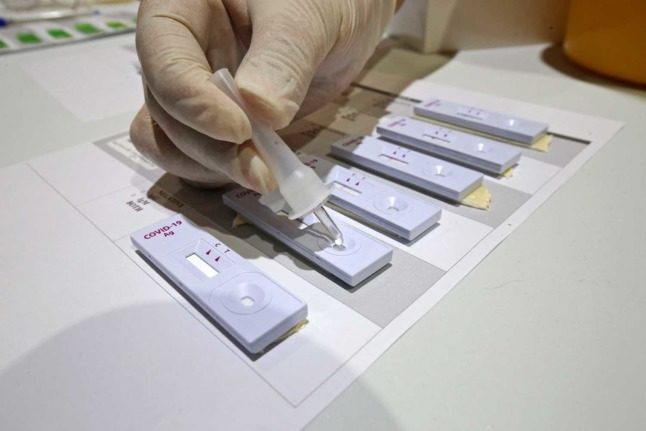The Swiss government has confirmed it will cover the costs of antigen tests which are taken for the purpose of travel.
Prior to the change, travellers would have to take the tests at their own expense, which could cost them anywhere from CHF20 to CHF90.
While the Swiss government has been covering the costs of tests for some time, this did not include tests taken for the purpose of travel.
Countries and airlines frequently require negative tests as a condition of travel or entry, even if a person is fully vaccinated or has recovered from the virus.
While the change was made on June 26th, Swiss media reports that testing sites and pharmacies across the country have continued to charge.
If you have paid for a test since this time, you can approach the testing site for a refund.
The refund will be given if you have proof of purchase, although Swiss news outlet Le Matin reports that testing sites may be able to charge a fee if they provided an additional service on top of the test, such as providing health advice or information about the requirements at destinations.
Martine Ruggli, president of PharmaSuisse, said mistakes may have been made by pharmacies who were not aware the rules had changed.
“We communicated this on June 24 to all member pharmacies of our company. The test and its certificate are free. This is a recent decision, so we are in a transitional situation where everyone has not yet applied the measure”
Unlike antigen tests, PCR tests – which are sometimes a requirement of entry – will not be covered by the government and therefore will need to be taken at the traveller’s expense.



 Please whitelist us to continue reading.
Please whitelist us to continue reading.
I am confused about this decision, as in Zurich antigen tests (rapid tests) have been free for a while, also for the purpose of traveling. Or better, nowhere it said that you weren’t entitled to get a free test depending on the reason. The Federal directive clearly said that tests were free even without symptoms, and nothing else.
Indeed, it’s a very weird article. I have got several antigen tests for travelling for free…
At the Zurich Airport the testing has never been offered for free for travel. I hope the antigen test will be free there now.
The testing center at Zurich airport is an exception, they clearly say in their website that they don’t bill to insurance companies. Any other testing center in Zurich (including pharmacies) did the rapid tests for free (that is, billing the insurance company).
I agree with the comments here. In Zurich the antigen tests for travel have been free for a while now. I think this can be explained at the cantonal level – the cantons all do it differently. Sometimes I’ve noticed the the Local articles are written based on the Geneva situation and don’t always reflect the situation in other cantons. One thing we need to learn in Switzerland is that when it comes to handling a global health emergency and all the rest that goes with it, the cantonal approach doesn’t work that well. I hope Bern takes better central control ready for the next pandemic which they say will come – just a question of when if not this confusion will continue to annoy us
I assume if you are a US leisure traveler that and the antigen test for the purpose of boarding a depatriur flight would not be free….correct?